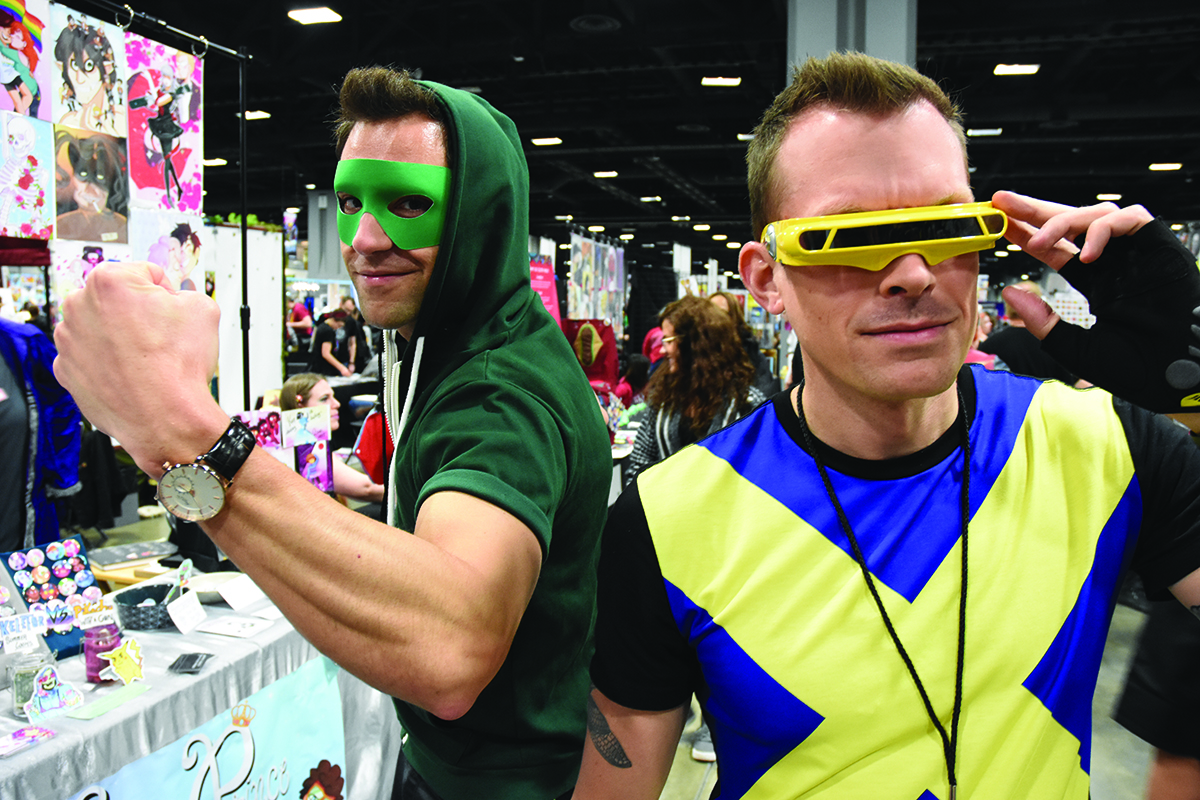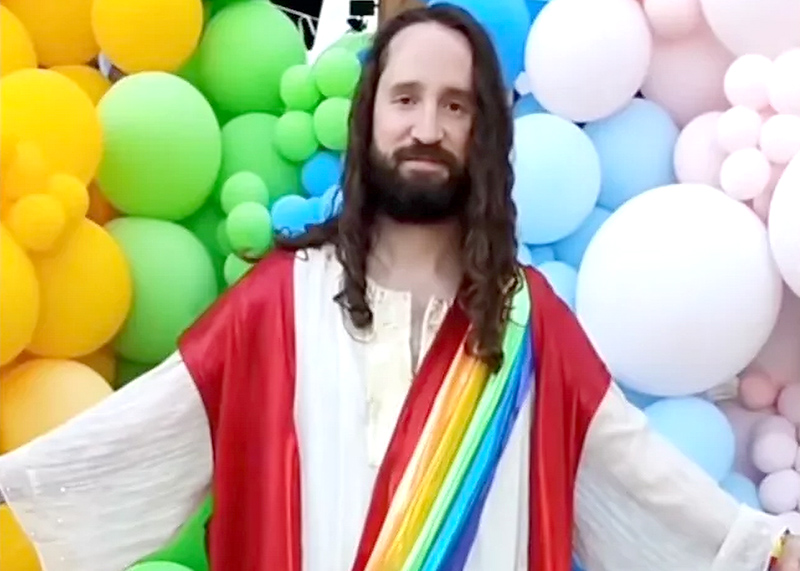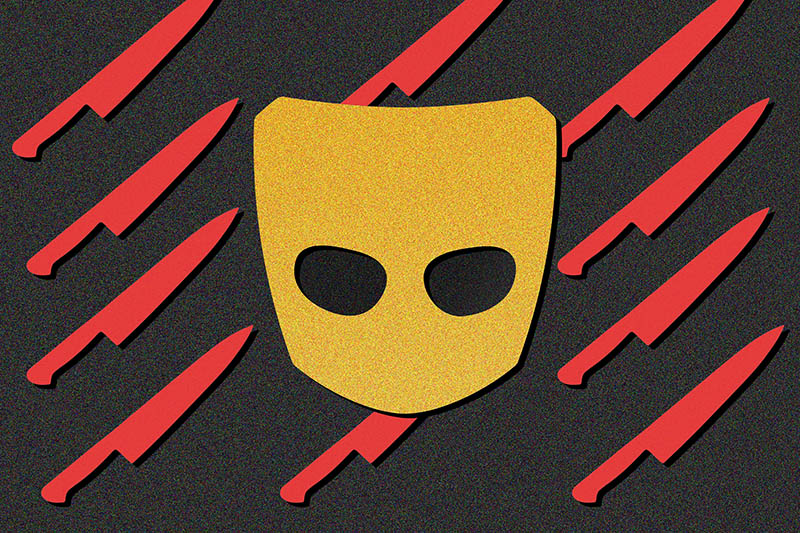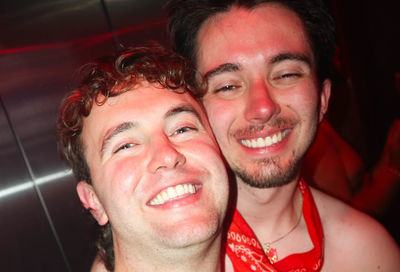In ‘Nora Highland,’ Ryan Spahn addresses a huge LGBTQ casting problem
Spahn's film sharply tackles the issue of why LGBTQ actors are often passed over for LGBTQ roles.

“I’m an actor, and I’m openly gay,” says Ryan Spahn. “And because of that, I have received a lot of thinly veiled homophobia in [casting] decision-making. Sometimes it’s obvious and sometimes it’s not.
“It’s such a hard pill to swallow in this business,” the noted New York stage actor continues, “because [a casting director] can’t ask somebody their sexuality, but they can subtly — or not-so-subtly — discriminate against actors for their sexuality, and just claim they didn’t know because they can’t legally ask.” Spahn says this creates a “repetitive result,” in which “actors who are open about their queerness become smaller and smaller within the business with what they’re able to play, allowed to play, and celebrated for playing.”
“We, as queer individuals, are not given the kind of opportunities that straight people are. And so, we may end up looking like not the best choice, which I think is about people just expecting different things out of queer people that they don’t expect out of straight people.”
Spahn set out to address the LGBTQ-casting problem in his smart, scorching play Nora Highland, which had its first reading in June of 2019 at the Pride Plays festival in New York. After the pandemic struck in March 2020 and the Off-Broadway show Spahn was currently in, Mr. Toole, abruptly closed, he found himself looking for new outlets to express his pent-up creativity. In the spring of 2020, using extreme social distancing measures, he directed an hour-long movie version of Nora, which will have its streaming premiere this Monday at NewFest, New York’s vaunted LGBTQ film festival.

The movie plays out in three distinct portions. The first and the third veer into humorous territory, but the middle section is the show’s heart, laying out Spahn’s point during a sharp exchange between two friends — one a director (Marin Ireland) who has finally scored a Broadway break, the other a celebrated actor (Michael Hsu Rosen) who is being denied a gay role because of the fact that he is, in fact, openly gay. Their encounter gradually evolves from casually friendly to bitterly brutal.
“I wanted to explore the three situations I had been privy to,” says Spahn, who, even at 40, retains a certain playful boyishness. Using inventive techniques to visually propel the narrative, Nora Highland feels like it could have been made before the pandemic. The actors are all physically separated, but there’s a carefully planned authenticity to the set-ups. Nowhere is this more apparent than in the remarkable Facetime chat. Filmed in a single, masterful take, it’s a stunning, almost athletic sequence. “We did a lot of rehearsals,” laughs Spahn.
During the pandemic, Spahn and his husband, actor Michael Urie, have given generously of their time and talents to help raise money for unemployed actors impacted by the now grave New York theater shutdown. Spahn misses his life on the stage, and longs to return one day to performing before an audience.

“This must be what it feels like when a professional ice skater twists their ankle or a pro runner ruins their meniscus,” he says. “It’s a deep loss, it’s a deep sadness. And Michael and I as a team have invested heavily in saying yes and being a part of whatever comes our way with regards to the digital theater space, but it’s not the same thing.
“I’m arguably just a working-class actor,” he continues. “Yet I have the benefit of being with somebody who is at a different place in his career, which helps us as a couple. But all the working-class actors in the city — we’re going to lose so many people in the arts because of this.”
Nora Highland will have its World Premiere on Monday, Oct. 26, at New Fest. The stream begins at 8 p.m. and is followed by a Q&A with Spahn. Tickets are $12. Visit https://newfest.org/event/nora-highland.
Read more:
Bad Hair review: Justin Simien’s camp horror has some split ends
Album Review: Waylon Payne’s “Blue Eyes, the Harlot, the Queer, the Pusher, and Me”
Savor Recipe: Bloody Velvet Cake
Support Metro Weekly’s Journalism
These are challenging times for news organizations. And yet it’s crucial we stay active and provide vital resources and information to both our local readers and the world. So won’t you please take a moment and consider supporting Metro Weekly with a membership? For as little as $5 a month, you can help ensure Metro Weekly magazine and MetroWeekly.com remain free, viable resources as we provide the best, most diverse, culturally-resonant LGBTQ coverage in both the D.C. region and around the world. Memberships come with exclusive perks and discounts, your own personal digital delivery of each week’s magazine (and an archive), access to our Member's Lounge when it launches this fall, and exclusive members-only items like Metro Weekly Membership Mugs and Tote Bags! Check out all our membership levels here and please join us today!























You must be logged in to post a comment.